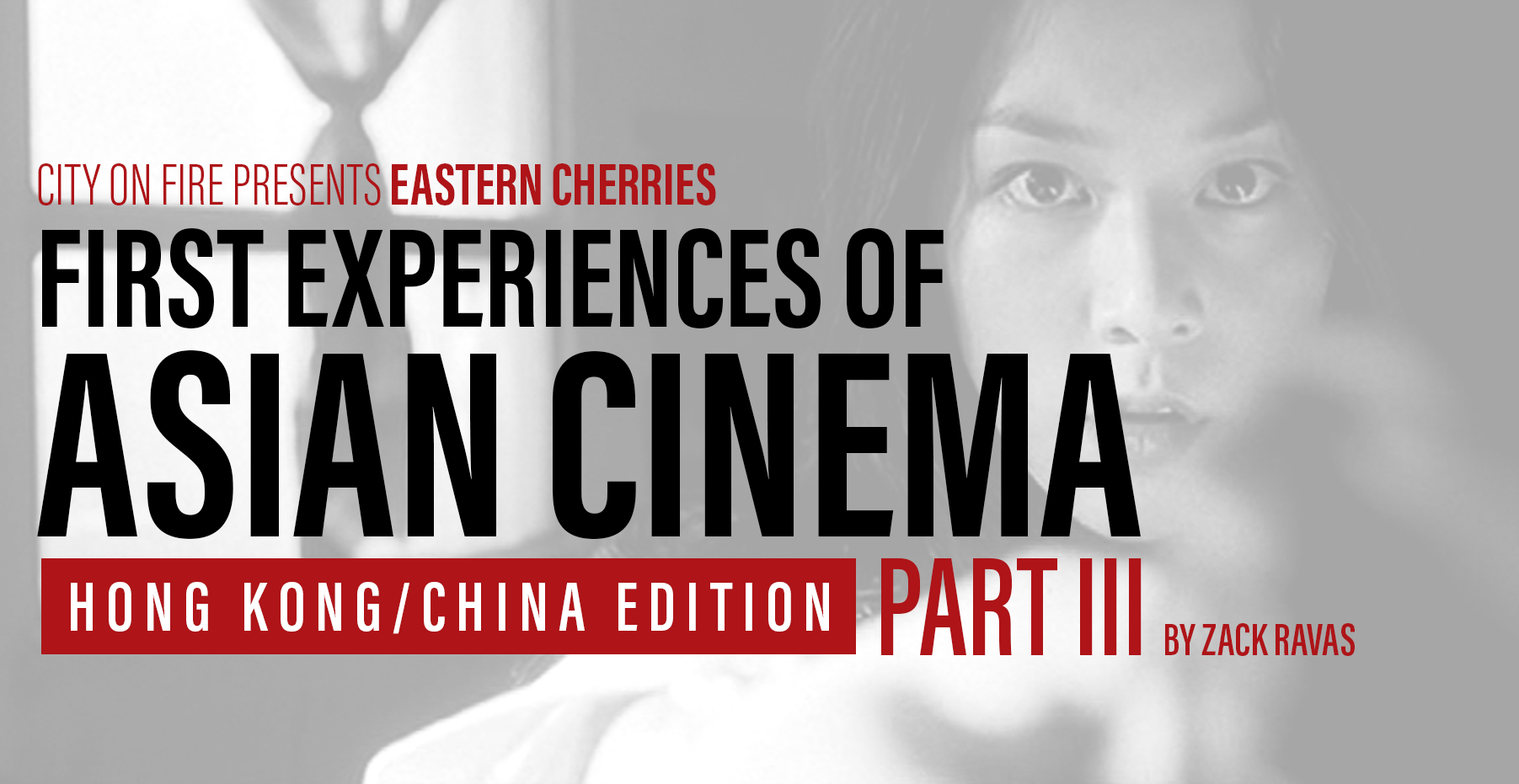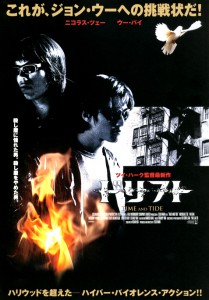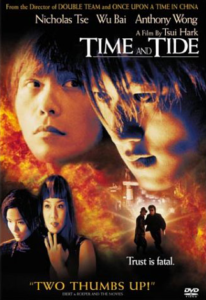
By 2002, I’d seen a handful of Hong Kong action movies – mostly John Woo staples like A Better Tomorrow and Miramax’s dubbed Jackie Chan pictures – but it wasn’t until my hand reached for a lonely copy of Tsui Hark’s 2000 gonzo action masterpiece Time & Tide at Blockbuster Video that I truly became a devotee of the genre. To my teenage self, Hark’s surreal blend of audacious camerawork, Matrix-esque bullet time, and bravado setpieces registered as a revelation. Time & Tide is a film that rarely pauses to catch its breath, one that’s infused with kind of formal inventiveness you’d expect to find in an arthouse picture, not a big-budget action movie. The heady rush of Hark’s visual storytelling isn’t without a price: despite repeated viewings over the years, I’d be hard-pressed to give you a succinct description of the plot; but at this point, that’s almost part of Time & Tide’s charm. Sometimes you have to leap before you look.
Nicholas Tse, then just an up-and-coming heartthrob with appearances in Gen-X Cops and A Man Called Hero, plays an all-around screw-up trying to hold down a job as an amateur bodyguard. Before long, his new gig finds him crossing paths with stoic Taiwanese actor (and massively successful rock star) Wu Bai, appearing here as a former mercenary “with a very particular set of skills,” now looking to start a new life with his pregnant bride. Time & Tide’s rather misleading American tagline was “Trust is fatal,” but Nicholas Tse and Wu Bai will have to team up if they have any hope of surviving a villainous band of South American assassins known as the Angels. Or something.
With hindsight, it’s easy to view Time & Tide as Tsui Hark’s gleeful return to his Hong Kong stomping grounds, bringing with him everything he learned while crafting his Hollywood collaborations with Jean-Claude Van Damme. The same freewheeling, anarchic visual stylings on display in 1998’s Knock Off are present here, but truly flourish thanks to a setting that has more to do with classic heroic bloodshed tropes than JCVD selling jeans with nanobombs in their buttons. Back then, I’d never seen an action movie quite as kinetic as Time & Tide, and by the time Tsui Hark’s constantly roving camera followed Wu Bai out a window as he repeled down the side of a Hong Kong tenement building, I knew I was hooked.
(I’m clearly not the only fan: Time & Tide continues to be an influence on the current generation of Asian action directors, as over a decade later that tenement building sequence I mentioned was more or less lifted for both Choi Dong-hoon’s 2012 smash hit The Thieves, and 2014’s No Tears for the Dead from The Man From Nowhere director Lee Jung-beom.)
Time & Tide proves that, at its core, action cinema is about one thing: motion. The film serves as a tribute to the human form in flight, whether Hark’s actors are scaling the side of a building, leaping over a catwalk, or kicking a live grenade before it explodes. Although these days Tsui Hark has grown more enamored of computer effects, Time & Tide is host to a plethora of practical stunts. The director’s restless visual ingenuity still impresses, and guarantees you’ll be saying “how the hell did they do that?” at least once every five minutes.
You could make the argument that Tsui Hark had already produced better films around this time – whether the nihilistic wuxia of 1995’s The Blade or the lush fantasy of 1993’s Green Snake; and certainly those movies are a little easier to follow, due to Time & Tide’s almost free-association script. But for me, Time & Tide will always loom the largest. It’s the rare action film that reinvigorates the form. During one scene, everything pauses so Tsui Hark can zoom in on Nicholas Tse locked inside a refrigerator as he attempts to survive an explosion; it’s appropriate, as that’s kind of what watching this movie feels like at times. No one else has made a film quite like this –– and I’m not sure anyone but Tsui Hark would be bold enough to try.
For me, Time & Tide represented a turning point. No longer would I be content to wait for the next Jackie Chan movie to be released in American cinemas. No longer would I merely keep an eye out for the occasional Hong Kong film that my local video store decided to procure. Now I was on the hunt; I had to actively track down and get my hands on any movie that featured a Chinese actor throwing a punch or brandishing a pistol. The transformation was complete: Time & Tide had turned me from a fan into a fanatic.
https://www.youtube.com/watch?v=8Wr98onsScQ
Read First Experiences of Asian Cinema: Hong Kong & China Edition Part I
Read First Experiences of Asian Cinema: Hong Kong & China Edition Part II
Read First Experiences of Asian Cinema: Hong Kong & China Edition Part IV





Man, this feature makes me realize I’m long due a re-watch of ‘Time & Tide’. Completely agree that it’s almost impossible to describe the plot, but tonally (& visually) it’s very much Hark’s HK equivalent of ‘Knock Off’. Looking back at it from 2018, we can fully appreciate that ‘Time & Tide’ was made in that sweet spot just before CGI started to increasingly appear in action movies, and stuntwork was still the order of the day (it kinda made me sad seeing Wu Bai again recently in the Tsui Hark produced CGI fest ‘The Thousand Faces of Dunjia’). Now, time to locate it on the DVD shelves!
I loved Time and Tide, and was lucky to catch it in an art house theatre years ago. The camera tricks and editing that Tsui Hark experimented with in The Blade and his Van Damme ventures were perfected in this movie.
I would have loved to have seen this in the theater. Maybe some day? I’m not sure if there are even any film prints of this floating around in the ether.